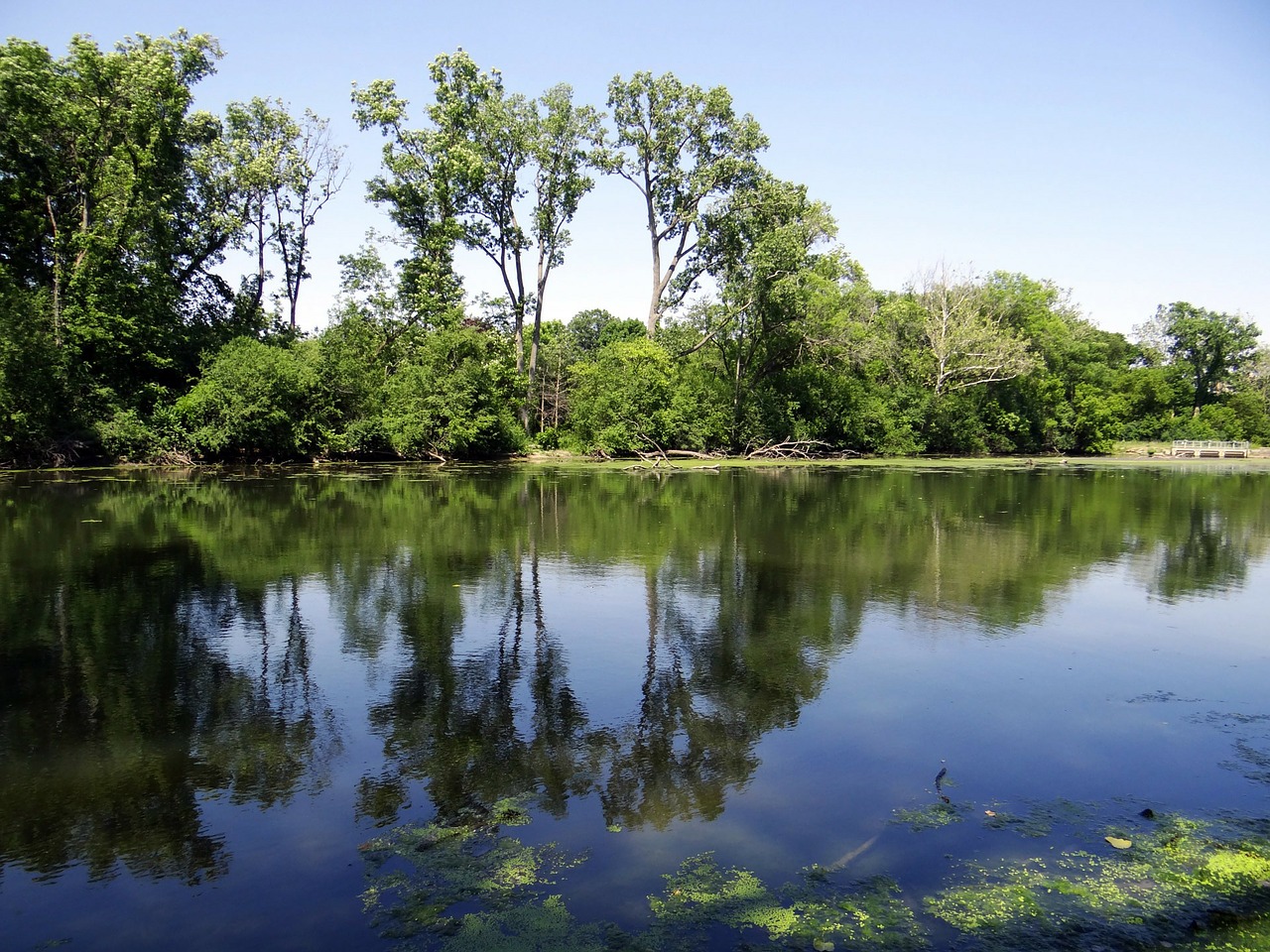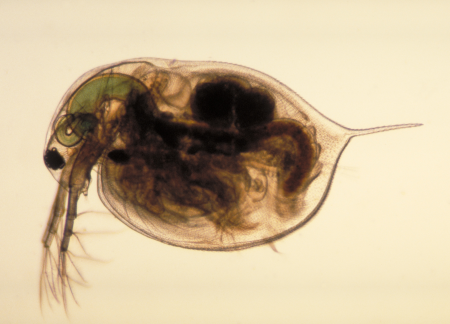
The water flea is a tiny creature — as its name suggests — and it can have a big impact on freshwater ecosystems.
“Pretty much everything eats Daphnia [water fleas],” says Gustavo Betini, a postdoc in integrative biology at the University of Guelph. He’s working with Prof. John Fryxell to study the effects of climate change on these organisms.
“It’s a very important food source for small fish and other small aquatic organisms, so they’re a key species for the food web,” says Betini. “Any crash that you see in the Daphnia population is very likely to have an effect on the entire aquatic ecosystem.”
Using the limnotron, a massive six-tank research facility in the Biodiversity Institute of Ontario at the University of Guelph, he can adjust water temperature and light in each of the tanks to mimic changes in the environment. Each tank is filled with 28,000 litres of water set at temperatures of 15, 20 or 25 C, which are similar to those found in the Great Lakes.
Some of the tanks contain both Daphnia and algae (their food source), while others contain only algae.
“These are very good model organisms,” says Betini of water fleas. “We know quite a bit about them and their basic biology. We’re interested in the dynamics of the population, and how the population is going to change with increasing temperatures that are happening as a consequence of climate change.”
Betini and his research team collect daily water samples from 18 ports, which are located at different heights on each tank, to measure how the Daphnia and algae populations change over time. The relationship between consumers and resources in an ecosystem is constantly changing, he explains, as consumers (in this case, Daphnia) eat resources (algae).
Their lifespan depends on their environment. In the algae-only tank, the algae thrive without predators. “When the Daphnia is with the algae, they consume pretty much everything,” says Betini.
The algae population goes through cycles of peaks and crashes. Using three-millilitre algae samples from the tanks, he is studying how they interact with bacteria and nutrients in the water.

“We believe that interaction between algae and bacteria creates a constant renewal of nutrients,” he explains, adding that bacteria feed off the dead algae and produce nutrients for the next generation of algae. This nutrient recycling allows the algae to survive much longer. “If the algae consume all of the nutrients, then they should die, but this is not what we see in our experiments. Algal populations in these three-millilitre vials present rich dynamics.”
Research shows that rising temperatures associated with climate change affect the size of aquatic animals. Daphnia and other aquatic species are particularly vulnerable to climate change because they can’t regulate their body temperature, says Betini. When exposed to higher temperatures in the tanks, Daphnia grow smaller, but it’s not clear why.
To find out how temperature affects Daphnia, he’s studying Daphnia offspring and raising them in the lab. Daphnia offspring born in 25 C tanks were transferred to a lab where they were raised in 15 C or 25 C water. Betini is measuring their size, counting their offspring and tracking their lifespan. Daphnia magna (the species he uses in his experiments) live for 30 days on average, but they can triple their lifespan under lab conditions.
If their size is related to temperature, the offspring should be smaller at 25 C and larger at 15 C, he explains. If the water temperature in the limnotron tanks caused genetic changes, Daphnia parents raised in a 25 C tank should have smaller offspring than offspring of Daphnia raised in a 15 C tank, regardless of the temperature the offspring were raised in the lab.
“It’s a great opportunity to measure the effects of climate change on freshwater organisms,” he says.